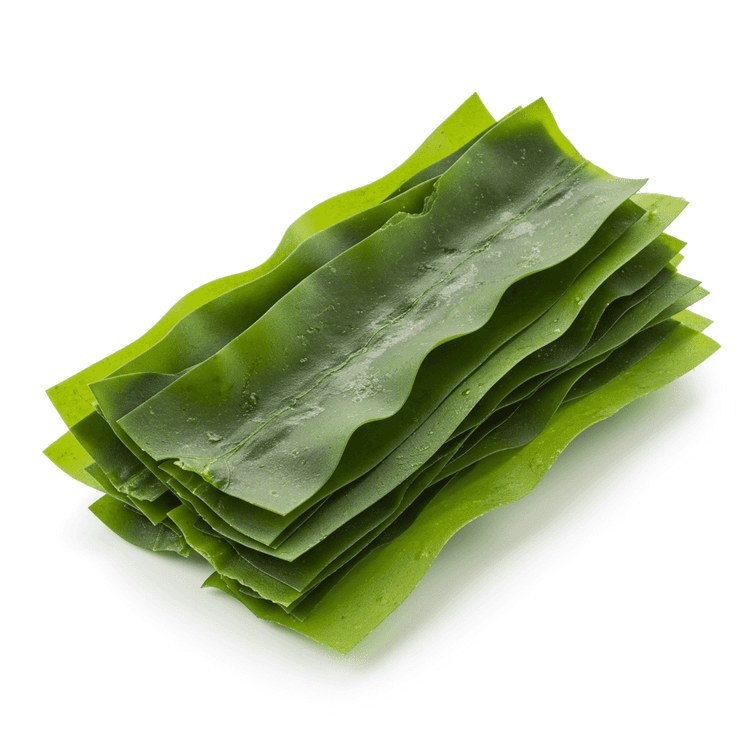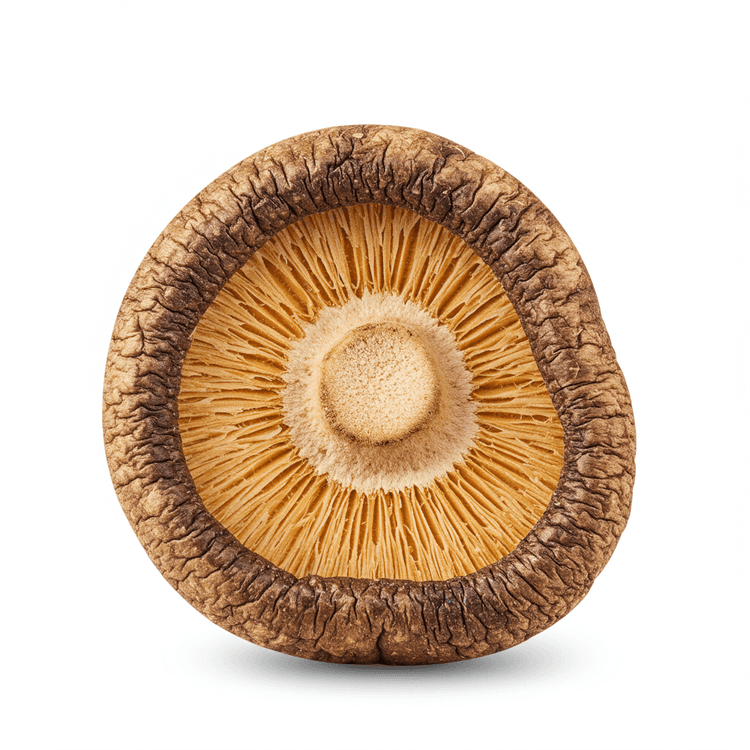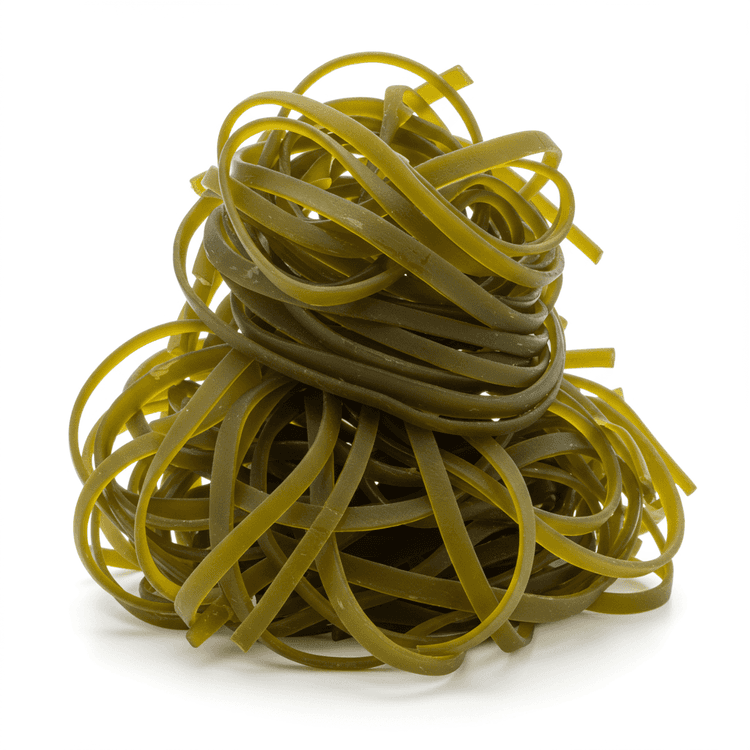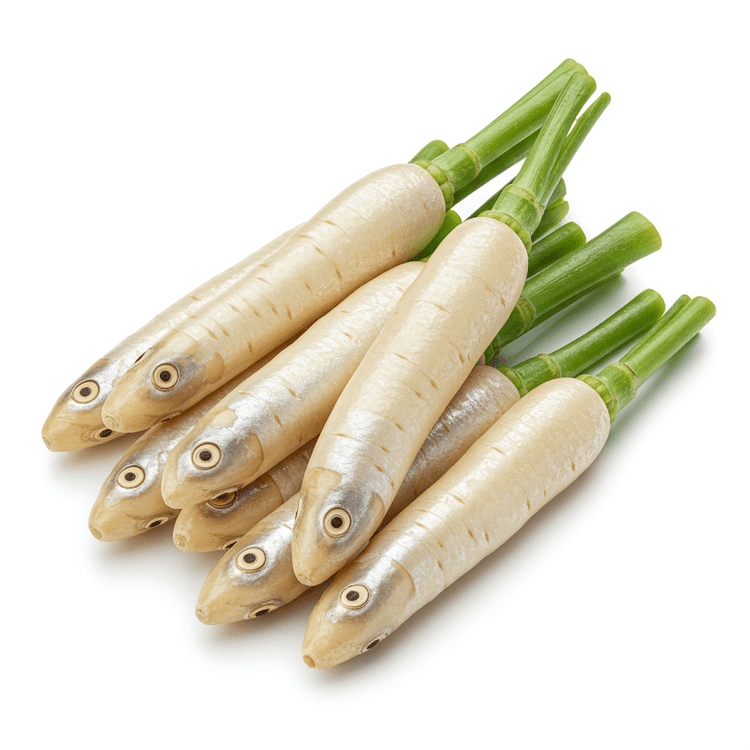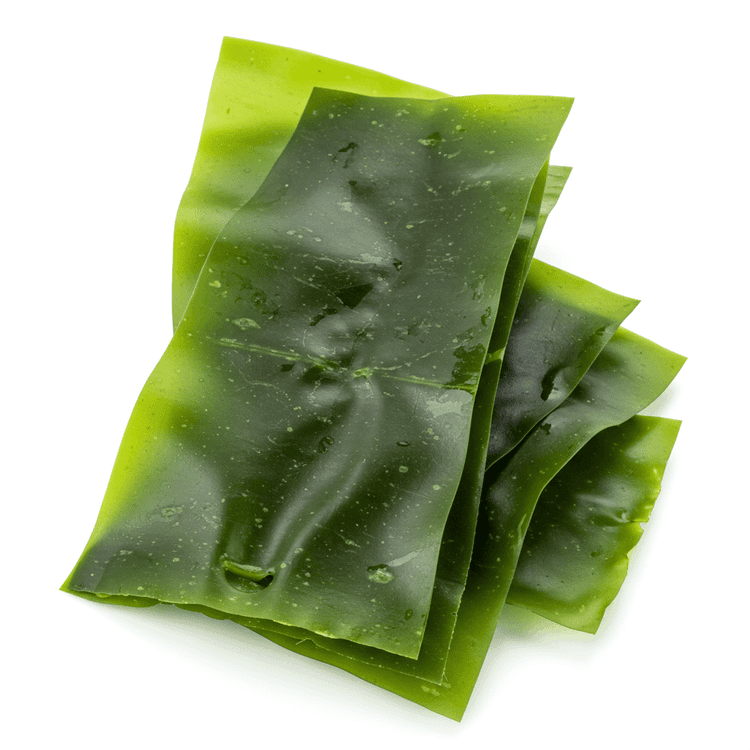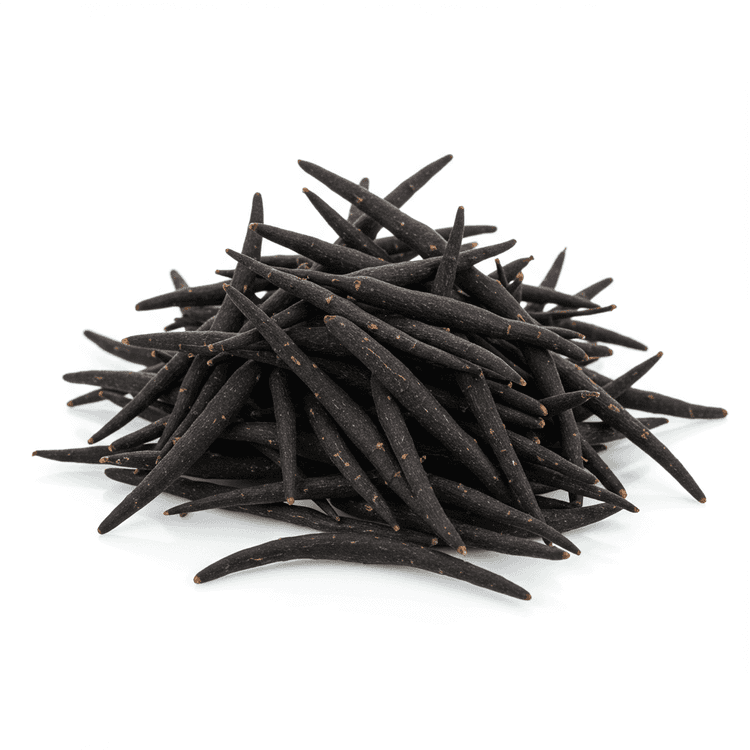
Kombu
Kombu is a type of kelp, a large brown seaweed, prized for its umami-rich flavor and nutritional benefits. It's a key ingredient in Japanese cuisine, particularly as a base for dashi broth. Dried kombu appears as dark, leathery sheets, often with a white powdery coating of glutamic acid, which contributes significantly to its savory taste. When cooked, kombu softens and imparts a subtle, salty, and deeply savory flavor to dishes, enhancing the overall depth and complexity of broths, stews, and beans. It's also a source of iodine and other beneficial minerals, making it a healthy and flavorful addition to your pantry.
Common Uses
- As a base for dashi broth: Kombu is simmered in water to create dashi, a fundamental broth used in many Japanese recipes like miso soup, noodle soups, and simmered dishes. The kombu infuses the water with its savory umami flavor, creating a rich and complex broth.- To tenderize and flavor beans: Adding a strip of kombu to beans while cooking helps to tenderize them and reduce cooking time, while also imparting a subtle savory flavor that enhances their taste.- In simmered dishes (Nimono): Kombu is often added to Japanese simmered dishes like nimono, where it absorbs the flavors of the other ingredients and adds a pleasant chewiness to the dish.- As a flavoring agent in pickles and tsukudani: Kombu can be pickled or simmered in soy sauce and sugar to create tsukudani, a flavorful condiment that adds a salty, savory, and slightly sweet taste to rice and other dishes.- Added to rice for improved digestion: Placing a strip of kombu when cooking rice is said to improve the rice's digestibility while also increasing the nutritional value of the finished cooked rice by infusing it with valuable minerals and compounds.
Nutrition (per serving)
Nutrition (per serving)
Calories
43.0kcal (2.15%)
Protein
2.0g (4%)
Carbs
6.9g (2.51%)
Sugars
0.0g
Healthy Fat
0.5g
Unhealthy Fat
0.1g
% Daily Value based on a 2000 calorie diet
Nutrition (per serving)
Calories
43.0kcal (2.15%)
Protein
2.0g (4%)
Carbs
6.9g (2.51%)
Sugars
0.0g
Healthy Fat
0.5g
Unhealthy Fat
0.1g
% Daily Value based on a 2000 calorie diet
Health Benefits
- Rich in iodine, essential for thyroid health and regulating metabolism.
- Contains glutamic acid, a natural flavor enhancer that may reduce the need for added salt.
- A good source of minerals like calcium, potassium, and iron, supporting bone health and energy levels.
- May help improve digestion and gut health due to its algin content, a soluble fiber.
- Low in calories and fat, making it a healthy addition to soups and broths.
Chefadora AI is here.
Experience smarter, stress-free cooking.
Storage Tips
Dried kombu should be stored in an airtight container in a cool, dark, and dry place. Properly stored, it can last for several years. Avoid exposure to moisture, as it can cause mold. If you purchase fresh kombu, keep it refrigerated and use it within a few days. Rehydrated kombu can also be stored in the refrigerator for a couple of days.
